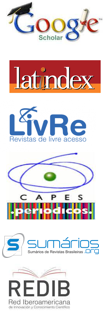A Natureza do Conhecimento Científico: uma Análise a Luz da Formação do Docente de Matemática
DOI:
https://doi.org/10.17921/2447-8733.2022v23n3p502-510Resumo
A Epistemologia Genética proposta por Jean Piaget permite-nos o estudo acerca dos processos e relações estabelecidas entre o sujeito e o objeto. Nesse sentido, o referencial piagetiano expõe que conhecimento científico difere segundo à suas distintas naturezas e que, são classificados segundo três tipos: o físico, o lógico-matemático e o social. Desse modo, uma vez que, como cada área do conhecimento científico possui distinções em sua natureza, é natural considerar que a prática docente destas devem ser realizadas de maneira distintas. Todavia, seria a temática natureza do conhecimento da Matemática abordada durante a formação inicial de docentes de Matemática? Mais ainda, existem pesquisas que abordam a construção do conhecimento matemático segundo os pressupostos da Epistemologia Genética? Motivados a compreender questões desta magnitude, foi proposto este trabalho que consistiu em realizar um levantamento bibliográfico de pesquisas no período de 2010 à 2020, cujo objetivo foi analisar os questionamentos desenvolvidos sobre a natureza do conhecimento matemático a luz da teoria da Epistemologia Genética, observando se os mesmos investigam problematizações na formação inicial do docente de Matemática. Para tanto, foi adotado como procedimento metodológico a Análise de Conteúdo (AC), proposta por Bardin. Constatamos com os dados obtidos uma carência de pesquisas relacionadas a temática em estudos na última década, o que implica em raros indícios de que a natureza do conhecimento da Matemática seja abordada em pesquisas relacionadas a formação inicial de docentes de Matemática.
Palavras-chave: Epistemologia Genética. Conhecimento Lógico-Matemático. Prática Docente.
Abstract
The Genetic Epistemology proposed by Jean Piaget allows us to study the processes and relationships established between subject and object. In this sense, the Piagetian referential exposes that scientific knowledge differs according to its nature and that there are three types of knowledge: physical, logical-mathematical and social. Thus, since each area of scientific knowledge has distinctions in its nature, it is natural to consider that their teaching practice must be carried out in different ways. However, would the thematic nature of knowledge of Mathematics be addressed during the initial training of Mathematics teachers? Furthermore, are there researches that address the construction of mathematical knowledge according to the assumptions of Genetic Epistemology? Motivated to understand issues of this magnitude, this work was proposed, which will consist of conducting a bibliographic survey of research in the period from 2010 to 2020, whose objective is to analyze the questions raised about the nature of mathematical knowledge in the light of the theory of Genetic Epistemology, observing whether they investigate problematizations in the initial training of Mathematics teachers. Therefore, the Content Analysis (CA) proposed by Bardin was adopted as a methodological procedure. With the data obtained, we verified a lack of research related to the subject in studies in the last decade, which implies rare evidence that the nature of knowledge in Mathematics is addressed in research related to the initial training of Mathematics teachers.
Keywords: Genetic Epistemology. Logical-Mathematical Knowledge. Teaching Practice.
Downloads
Publicado
Como Citar
Edição
Seção
Licença
Copyright (c) 2022 Revista de Ensino, Educação e Ciências Humanas

Este trabalho está licenciado sob uma licença Creative Commons Attribution-NonCommercial-NoDerivatives 4.0 International License.


